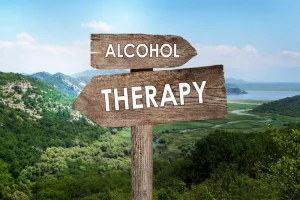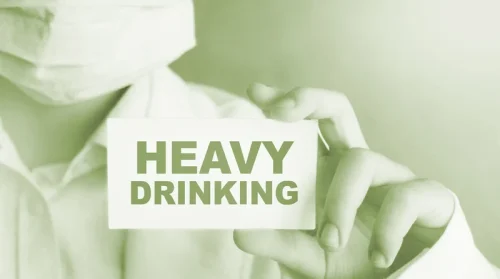
In this post, I highlight 58 Substance Abuse Group Therapy Activities for Recovery that you can use with your clients. In this post, I highlight 50 Substance Abuse Group Therapy Activities for Recovery that you can use with your clients. Experiential activities for group therapy offer dynamic ways to engage individuals in addiction recovery, helping them process emotions, build connections, and foster personal growth. From creative expression to trust-building exercises, these experiential therapy activities can unlock deeper layers of healing and encourage long-lasting recovery. This article explores 50 substance abuse group activities designed to empower individuals in their recovery journey.

Group Therapy Activities for Adults in Recovery

From self-care practices to communication exercises, these activities encourage positive change, help build essential skills, and strengthen support networks. Overall, peer support networks are an invaluable component of group therapy, offering a supportive and understanding community that enhances the recovery process. Promoting accountability and shared experiences, these networks help individuals build resilience and maintain their commitment to sobriety. As we wrap up our exploration of innovative approaches to addiction recovery groups, it’s clear that the landscape of support is as diverse as the individuals it serves. Recovery from substance abuse is strengthened through shared experiences, practical skills, and supportive connections. This list of 50 group activities is designed to empower individuals on their journey by building self-awareness, enhancing coping strategies, and fostering a sense of community.
Try Role-Playing Exercises

Gratitude circles provide a structured opportunity for group members to reflect on and alcoholism symptoms share positive aspects of their lives. Facilitators can encourage participants to articulate their gratitude through open-ended prompts, stimulating sharing and fostering a positive mindset. Regular engagement in journaling exercises helps individuals track their progress and reflect on their growth, reinforcing their commitment to sobriety. The following subsections will explore journaling exercises, gratitude circles, and visualization techniques as effective self-reflection activities within group therapy.
The Importance of Developing a New Identity After Addiction Recovery
Ask the group to visualize themselves lost at sea in a storm at night. Just as they are starting to lose hope, they see a glimmer of light. Rowing hard, they use it to guide them to shore, where they are given dry clothes, a hot meal, and a cozy place to sleep. Imprint this image in your mind, or perhaps even draw a picture of it, so you can use it again for guidance in your real life. Discuss the upside to stress, i.e. the positive role that some forms of stress can play in your life.
- That’s where goal-setting and future-planning activities come into play, helping participants envision and work towards a brighter future.
- Imagine groups racing to identify and challenge negative thoughts, passing the baton of positivity from one member to another.
- They provide opportunities for connection, support, and shared healing.
How to Practice Patience and Perseverance in Addiction Recovery
Building trust in group therapy settings is like laying the foundation for a house. When participants feel safe and connected, they’re more likely to open up, take risks, and engage fully in the therapeutic process. It’s chaotic, often hilarious, and a great metaphor for the recovery process. It teaches communication, problem-solving, and the importance of working together – all while getting people out of their comfort zones. Visualization techniques empower group members to create a mental image of their desired future, enhancing goal-setting in recovery. These exercises help individuals conceptualize their recovery goals and envision a positive future, promoting a sense of hope and motivation.
- The helpline at AddictionResource.net is available 24/7 to discuss the treatment needs of yourself or a loved one.
- Engaging as a group in the following activities can help people facing addiction focus on their mental health and well-being and grow connections with peers who share similar struggles.
- Role-playing high-risk situations gives participants a chance to practice using these coping strategies in a safe environment.
- There are numerous benefits to group therapy and peer support meetings that aren’t available in a one-on-one setting.
How to Use Strengths-Based Approaches in Addiction Recovery

Journaling provides a safe outlet for self-reflection and emotional processing. Provide journal https://ecosoberhouse.com/ prompts to help members explore their thoughts and feelings, enhancing their self-awareness and offering a therapeutic space for introspection. Meditation is a powerful tool for calming the mind and promoting mindfulness. Lead a guided meditation session to help members focus on the present moment, reduce anxiety, and develop a regular mindfulness practice that supports recovery.
- The need for diverse and engaging group activities has never been more apparent.
- Participants are encouraged to focus on the sensations of walking – the feeling of their feet touching the ground, the rhythm of their breath, the movement of their bodies.
- Engaging in these workshops also fosters a sense of community, promoting trust and open communication among group members.
- These mindfulness activities aren’t just about relaxation – they’re about developing a new relationship with thoughts and feelings.
- Recovery is not a destination but a journey, and these innovative group activities provide waypoints and rest stops along the path.
- With 4 years of relevant experience, she is passionate about conveying accurate and up-to-date information through her writing.
This peer-to-peer format enables honest discussions, helping members explore their feelings and learn from each other’s experiences. Cooking and nutrition workshops serve up a healthy dose of self-care and practical life skills. Learning to prepare nutritious meals can be a form of therapy in itself, not to mention a valuable skill for maintaining overall health. These sessions often culminate in shared meals, fostering a sense of community and accomplishment. In the hustle and bustle of recovery, finding stillness can be a challenge. These sessions teach individuals to be present in the moment, to observe their thoughts without judgment, and to develop coping strategies for group activities for substance abuse recovery dealing with cravings and stress.